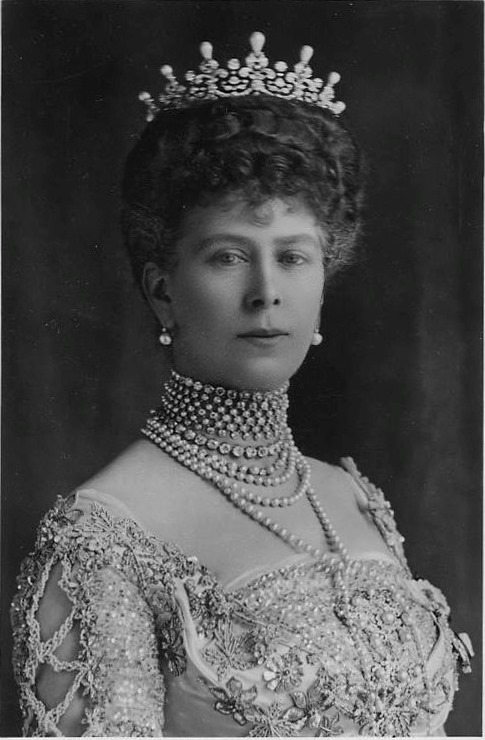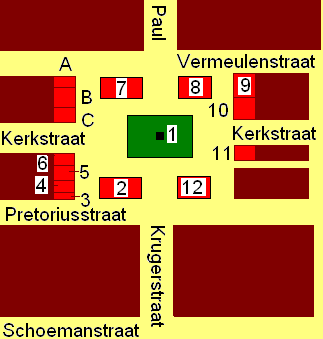|
1961 In South Africa
The following lists events that happened during 1961 in South Africa. Incumbents * Monarch: Queen Elizabeth II (until 31 May) * Governor-General: Charles Robberts Swart (until 30 April).Archontology.org: A Guide for Study of Historical Offices: South Africa: Governors-General: 1910-1961 (Accessed on 14 April 2017) * State President: (from 31 May). [...More Info...] [...Related Items...] OR: [Wikipedia] [Google] [Baidu] |
Queen Of South Africa
From 1910 to 1961, the Union of South Africa was a self-governing country that shared a monarch with the United Kingdom and the other Dominions of the British Empire. The monarch's constitutional roles were mostly delegated to the governor-general of the Union of South Africa. South Africa became a republic and left the Commonwealth of Nations on 31 May 1961. On 31 May 1994, South Africa rejoined the Commonwealth as a republic, after the end of apartheid. History The monarchy was created by the South Africa Act 1909 which united four British colonies in Southern Africa: Cape of Good Hope, Natal, Orange River Colony and Transvaal. The act also made provisions for admitting Southern Rhodesia as a fifth province of the union in the future, but Southern Rhodesian voters rejected this option in a referendum held in 1922. South-West Africa became a League of Nations mandate of the union in 1915. Following a referendum on the subject, South Africa adopted a new constitution in 1961 ... [...More Info...] [...Related Items...] OR: [Wikipedia] [Google] [Baidu] |
Governor-General Of South Africa
The governor-general of the Union of South Africa ( af, Goewerneur-generaal van Unie van Suid-Afrika, nl, Goeverneur-generaal van de Unie van Zuid-Afrika) was the highest state official in the Union of South Africa between 31 May 1910 and 31 May 1961. The Union of South Africa was founded as a self-governing Dominion of the British Empire in 1910 and the office of governor-general was established as the representative of the monarch. Fifty-one years later the country declared itself a republic and the historic link with the British monarchy was broken. The office of governor-general was abolished. Some of the first holders of the post were members of the British royal family including Prince Arthur of Connaught between 1920 and 1924, and the Earl of Athlone, who served between 1924 and 1931, before becoming the governor general of Canada. As in other Dominions, this would change, and from 1943 onward only South Africans (in fact, only Afrikaners) held the office. The office ... [...More Info...] [...Related Items...] OR: [Wikipedia] [Google] [Baidu] |
Eendrag
Stellenbosch University ( af, Universiteit Stellenbosch) is a public research university situated in Stellenbosch, a town in the Western Cape province of South Africa. Stellenbosch is the oldest university in South Africa and the oldest extant university in Sub-Saharan Africa, together with the University of Cape Town - which received full university status on the same day in 1918. Stellenbosch University (abbreviated as SU) designed and manufactured Africa's first microsatellite, SUNSAT, launched in 1999. Stellenbosch University was the first African university to sign the Berlin Declaration on Open Access to Knowledge in the Sciences and Humanities. The students of Stellenbosch University are nicknamed "Maties". The term probably arises from the Afrikaans word "tamatie" (meaning tomato, and referring to the maroon sports uniforms and blazer colour). An alternative theory is that the term comes from the Afrikaans colloquialism ''maat'' (meaning "buddy" or "mate"), originally u ... [...More Info...] [...Related Items...] OR: [Wikipedia] [Google] [Baidu] |
Albert Lutuli
Albert John Mvumbi Luthuli ( – 21 July 1967) was a South African anti-apartheid activist, traditional leader, and politician who served as the President-General of the African National Congress from 1952 until his death in 1967. Luthuli was born to a Zulu family in 1898 at a Seventh-day Adventist mission in Bulawayo, Rhodesia (now Zimbabwe). He returned to his family's ancestral home of Groutville in 1908 to attend school under the care of his uncle. After graduating from high school with a teaching degree, Luthuli became principal of a small school in Natal where he was the sole teacher. Luthuli's teaching was recognized by the government, and he was offered a bursary to study for the Higher Teacher's Diploma at Adams College. After the completion of his studies in 1922, he accepted a teaching position at Adam's College where he was one of the first African teachers. In 1928, he became the secretary of the Natal Native Teachers' Association, then its president in 1933. Luth ... [...More Info...] [...Related Items...] OR: [Wikipedia] [Google] [Baidu] |
African National Congress
The African National Congress (ANC) is a Social democracy, social-democratic political party in Republic of South Africa, South Africa. A liberation movement known for its opposition to apartheid, it has governed the country since 1994, when the 1994 South African general election, first post-apartheid election installed Nelson Mandela as President of South Africa. Cyril Ramaphosa, the incumbent national President, has served as President of the ANC since 18 December 2017. Founded on 8 January 1912 in Bloemfontein as the South African Native National Congress (SANNC), the organisation was formed to agitate, by moderate methods, for the rights of black South Africans. When the National Party (South Africa), National Party government came to power 1948 South African general election, in 1948, the ANC's central purpose became to oppose the new government's policy of institutionalised apartheid. To this end, its methods and means of organisation shifted; its adoption of the techn ... [...More Info...] [...Related Items...] OR: [Wikipedia] [Google] [Baidu] |
Nobel Peace Prize
The Nobel Peace Prize is one of the five Nobel Prizes established by the will of Swedish industrialist, inventor and armaments (military weapons and equipment) manufacturer Alfred Nobel, along with the prizes in Nobel Prize in Chemistry, Chemistry, Nobel Prize in Physics, Physics, Nobel Prize in Physiology or Medicine, Physiology or Medicine and Nobel Prize in Literature, Literature. Since March 1901, it has been awarded annually (with some exceptions) to those who have "done the most or the best work for fraternity between nations, for the abolition or reduction of standing armies and for the holding and promotion of peace congresses". In accordance with Alfred Nobel's will, the recipient is selected by the Norwegian Nobel Committee, a five-member committee appointed by the Parliament of Norway. Since 2020 the prize is awarded in the University of Oslo Faculty of Law, Atrium of the University of Oslo, where it was also awarded 1947–1989; the Abel Prize is also awarded in the ... [...More Info...] [...Related Items...] OR: [Wikipedia] [Google] [Baidu] |
1961 South African General Election
General elections were held in South Africa on 18 October 1961. They were the first general elections after South Africa became a republic following the 1960 South African referendum. The National Party under Hendrik Frensch Verwoerd won a majority in the House of Assembly. The National Union Party - led by J.D. du P. Basson and ex-Chief Justice Henry Allan Fagan in alliance with the United Party - had been formed as a "bridge" to the United Party for moderate nationalists who were unhappy with Verwoerd's leadership, but the party failed and later merged with the United Party. This election also saw the first general election appearance of the liberal Progressive Party, which had broken away from the United Party in 1959. The new party retained one MP, in the form of Helen Suzman. She was to remain its sole parliamentary representative until 1974. Changes in franchise End of black representation During the previous Parliament the seats of the three MPs and four Senators re ... [...More Info...] [...Related Items...] OR: [Wikipedia] [Google] [Baidu] |
Iraq
Iraq,; ku, عێراق, translit=Êraq officially the Republic of Iraq, '; ku, کۆماری عێراق, translit=Komarî Êraq is a country in Western Asia. It is bordered by Turkey to Iraq–Turkey border, the north, Iran to Iran–Iraq border, the east, the Persian Gulf and Kuwait to the southeast, Saudi Arabia to the south, Jordan to Iraq–Jordan border, the southwest and Syria to Iraq–Syria border, the west. The Capital city, capital and largest city is Baghdad. Iraq is home to diverse ethnic groups including Iraqi Arabs, Kurds, Iraqi Turkmen, Turkmens, Assyrian people, Assyrians, Armenians in Iraq, Armenians, Yazidis, Mandaeans, Iranians in Iraq, Persians and Shabaks, Shabakis with similarly diverse Geography of Iraq, geography and Wildlife of Iraq, wildlife. The vast majority of the country's 44 million residents are Muslims – the notable other faiths are Christianity in Iraq, Christianity, Yazidism, Mandaeism, Yarsanism and Zoroastrianism. The official langu ... [...More Info...] [...Related Items...] OR: [Wikipedia] [Google] [Baidu] |
Church Square, Pretoria
Church Square (Afrikaans: Kerkplein), originally Market Square (Dutch: Marktplein), is the square at the historic centre of the city of Pretoria, Gauteng, South Africa. The founder of Pretoria, Marthinus Pretorius, determined that the square be used as a market place and church yard. It was subsequently named for the church buildings that stood at the centre of the square from 1856 to 1905. The square's most prominent feature, since June 1954, is the statue of the late Boer leader and president of the South African Republic, Paul Kruger, at its centre. Statues of four anonymous Boer citizen-soldiers surround that of Kruger on a lower level of the plinth. Current buildings Several historically and architecturally significant buildings surround the square: the Palace of Justice, the Old Capitol Theatre, the Tudor Chambers, the Ou Raadsaal (Old Council Chamber) and the General Post Office, which was designed by William Hawke. 2014 revamping project In keeping with the historic ... [...More Info...] [...Related Items...] OR: [Wikipedia] [Google] [Baidu] |
Palace Of Justice, Pretoria
The Palace of Justice forms part of the northern façade of Church Square in Pretoria. The building dates to the nineteenth century and was designed by the Dutch architect Sytze Wierda. It is currently the headquarters of the Gauteng Division of the High Court of South Africa. The foundation stone was laid on June 8, 1897 by South African Republic (ZAR) President Paul Kruger. The most famous political trial in South Africa's history, the Rivonia Trial, took place here. During the trial, Nelson Mandela and a number of other prominent African National Congress (ANC) members were charged with treason and subsequently jailed. Construction The Palace of Justice was built by the Departement van Publieke Werken (DPW) under the guidance of design architect Sytze Wierda and builder John Munro. Construction of the building took place during the Second Boer War The Second Boer War ( af, Tweede Vryheidsoorlog, , 11 October 189931 May 1902), also known as the Boer War, the Angl ... [...More Info...] [...Related Items...] OR: [Wikipedia] [Google] [Baidu] |
Republic In The Commonwealth Of Nations
The republics in the Commonwealth of Nations are the sovereign states in the organisation with a republican form of government. , 36 out of the 56 member states were republics. Charles III, who is the reigning monarch in the Commonwealth realms, is also still the titular Head of the Commonwealth (but not the head of the members of the Commonwealth) in a personal capacity. This role does not carry with it any power; instead, it is a symbol of the free association of Commonwealth members. Except for the former Portuguese possession of Mozambique, the former Belgian trust territory of Rwanda and the former French possessions of Gabon and Togo, they are all former British (or partly British) colonies or self-governing colonies that have evolved into republics. Most of the Commonwealth's members achieved independence while keeping the British monarch as their own individual head of state (in a form of personal union) and later became republics within the Commonwealth by abolishin ... [...More Info...] [...Related Items...] OR: [Wikipedia] [Google] [Baidu] |

.jpg)




.jpg)

_1902_Church_Square_Pretoria_069.jpg)